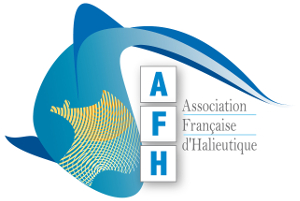Ichthyoplankton metrics as fishery-independent indicators of ecosystem change along the US west coast from California to Alaska
The Alaska Fisheries Science Center in Seattle, WA announces the availability of a full-time position for a Postdoctoral Research Associate through the National Research Council. We seek an innovative, quantitative ecologist with prior experience with time series analyses and working with large data sets (physical and biological) to join our multidisciplinary team of physical oceanographers, fisheries ecologists, stock assessment scientists, fisheries statisticians. The Postdoctoral Associate will utilize data derived from ichthyoplankton data sets collected from the Bering Sea (20 years), the Gulf of Alaska (Shelikof Strait; 30+ years) and the northern and southern California Current (Oregon 20 years, southern California 63 years) to assess shared and unshared patterns of change in key species and assemblages, examine potential relationships with environmental drivers, and evaluate spatial-temporal scales of coherence among fish assemblages along the west coast of North America. The successful candidate will also identify populations and assemblages that may serve as indicators of ecosystem status.
Candidates with robust statistical modeling expertise that may include traditional multivariate analyses (PCA, hierarchical clustering, ordination), GAM, dynamic factor analysis, and/or Random Forest and Gradient Forest Models are preferred.
Location: The incumbent will be based either in Dr. Tony Koslow’s laboratory at the Scripps Institution of Oceanography, University of California San Diego in La Jolla, CA (http://scrippsscholars.ucsd.edu/jkoslow) (preferred location), Newport, OR with Dr. Ric Brodeur, or with Dr. Janet Duffy-Anderson at the Alaska Fisheries Science Center in Seattle, WA, working within the Ecosystems and Fisheries-Oceanography Coordinated Investigations (Eco-FOCI) Program (http://www.pmel.noaa.gov/foci/).
Requirements:
- quantitative marine ecology, biological oceanography, fisheries, ecology, biostatistics or related disciplines.
- Must have prior experiece with advanced statistical analyses, such as Generalized Additive Models (GAM), State-Space Models, Random Forest Models, Multivariate Analysis, and/or geostatsistics.
- Prior experience in fish early life history and ecology recommended.
- Good organizational skills, proven ability to manage diverse data sets, and willingness to work and collaborate in an interdisciplinary group are essential.
- Strong written and oral communication skills are essential. Applicants must be able to communicate with a diverse group of stakeholders including scientists, fisheries managers, conservationists, and the public.
Stipend: ~$56,000 US/year
To Apply:
Applications must be made through the National Research Council website.
http://nrc58.nas.edu/RAPLab10/Opportunity/Opportunity.aspx?LabCode=26&ROPCD=260340&RONum=B8277
The period for applications is open December 1, 2015 – February 1, 2016. Funding for the position is pending approval of a FATE proposal, the outcome of which should be known in mid-January.
Questions and more information about the position may be directed to Dr. Janet Duffy-Anderson, phone (206-526-6465; email Janet.Duffy-Anderson@noaa.gov), Dr. Richard Brodeur (541-867-0336; rick.brodeur@noaa.gov), or Dr. Tony Koslow (858 534-7284; email: jkoslow@ucsd.edu). Applicants are strongly encouraged to contact the one of the advisors prior to application.
